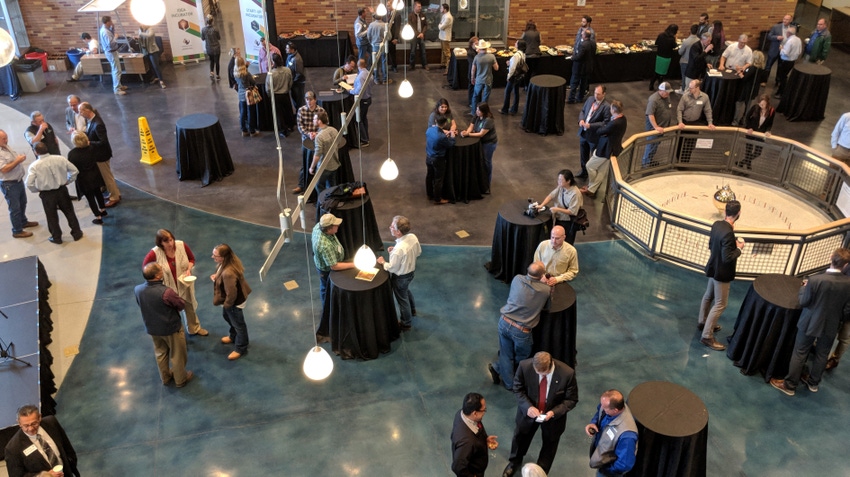
[This is the second in a three-part series on efforts to recruit and train the next generation of agricultural workers amid a technology revolution.]
If agriculture needs to train its current and future workforce for the technological advances that the industry is adopting at breakneck speed, who better to do the training than colleges and universities?
Programs are underway on numerous campuses in the West to teach existing farmworkers as well as current students how to operate robotics, fix complex new equipment and translate raw data into tangible on-farm solutions.
One campus – the University of Arizona’s Yuma satellite – is bringing in area middle school and high school students for week-long summer institutes in working with robotics and other technology, said Tanya Hodges, the campus’ regional academic director.
“We’ve been embedding tech into all of our majors,” Hodges said during the recent Salinas Valley Ag-Tech Summit, which was held online. “Because we’re such a small campus, engineering doesn’t stand alone and computer tech doesn’t stand alone. We share advisory committees and partner with agrarian students who get a chance to work through the program.”
A similar collaborative approach is employed by California Polytechnic University, San Luis Obispo, with researchers not only working on machinery but also plant genetics so future crops will be easier to harvest mechanically.
“With a lot of our activities, we work between departments,” said Peter Livingston, who leads Cal Poly’s BioResource and Agricultural Engineering Department. “Anytime you go to automate the harvest of broccoli, if you’re not working with the plant sciences folks to get a stem that’s long enough, it’s going to be difficult to harvest it.”
Ramping up instruction
Higher education is ramping up its high-tech instruction as labor shortages and regulations are creating a sense of urgency within agriculture to automate more farm tasks, including harvest.
Earlier this year, three West Coast land-grant universities – Washington State University, Oregon State University and the University of California – and Western Growers launched parallel initiatives to begin automating a significant percentage of specialty-crop harvests within the next decade.
The universities plan to develop prototypes such as a robot for pruning and harvesting pears, a precision sprayer for fruit crops, sensors and algorithms to collect data on apples and pears, and decision models for apples and pears based on the data and the scientists’ expertise, WSU has explained.
Other Western universities that aren’t directly involved in these initiatives are nonetheless advancing ag-tech. The University of Santa Clara uses its proximity to Silicon Valley to incorporate new technology in its bachelor’s, master’s and doctoral degree programs, said Chris Kitts, an engineering professor who runs a robotics program.
“We’re very interested in what the new age workforce is,” said Kitts, adding that tech is not only part of the ag curriculum but also advanced manufacturing, health care and other professions.
The work isn’t limited to universities, either. Hartnell College, a Salinas, Calif., community college, is working with California State University, Monterey Bay on a three-year track for a bachelor’s degree in computer science and is working ag into the curriculum, said Clint Cowden, the college’s dean of career technical education and workforce development.
The college is also teaming with large ag operations such as Driscoll’s and Taylor Farms to offer non-credit farmworker education courses, Cowden said.
“We have two missions,” he said during the ag-tech webinar. “One is to get students into universities, but the other is that we have a lot of students who come in and want to be a front-line supervisor or floor mechanic.”
The San Joaquin Valley’s Reedley College is also in discussions with area producers and farm groups about expanding its certification and associate-degree programs to include expertise in more areas of ag mechanics and technology, said David Clark, the college’s dean of instruction for agriculture and natural resources, business and industrial technology.
Living laboratory
With educational institutions and private startups finding new innovations to address the state’s challenges and training workers to take advantage of them, California has become a sort of “living laboratory,” state Food and Agriculture Secretary Karen Ross said during the summit.
“Part of what is driving entrepreneurship and innovation are the very challenges we’re presented with” such as climate change and water shortages, Ross said. “Because we have the university system, because we have venture capital and people who are part of legacy family operations that are in their fourth or fifth generations … we’re going to figure it out even if it’s the vexing problem of the day.”
[Tomorrow: Worker education is important to industry.]
About the Author(s)
You May Also Like






